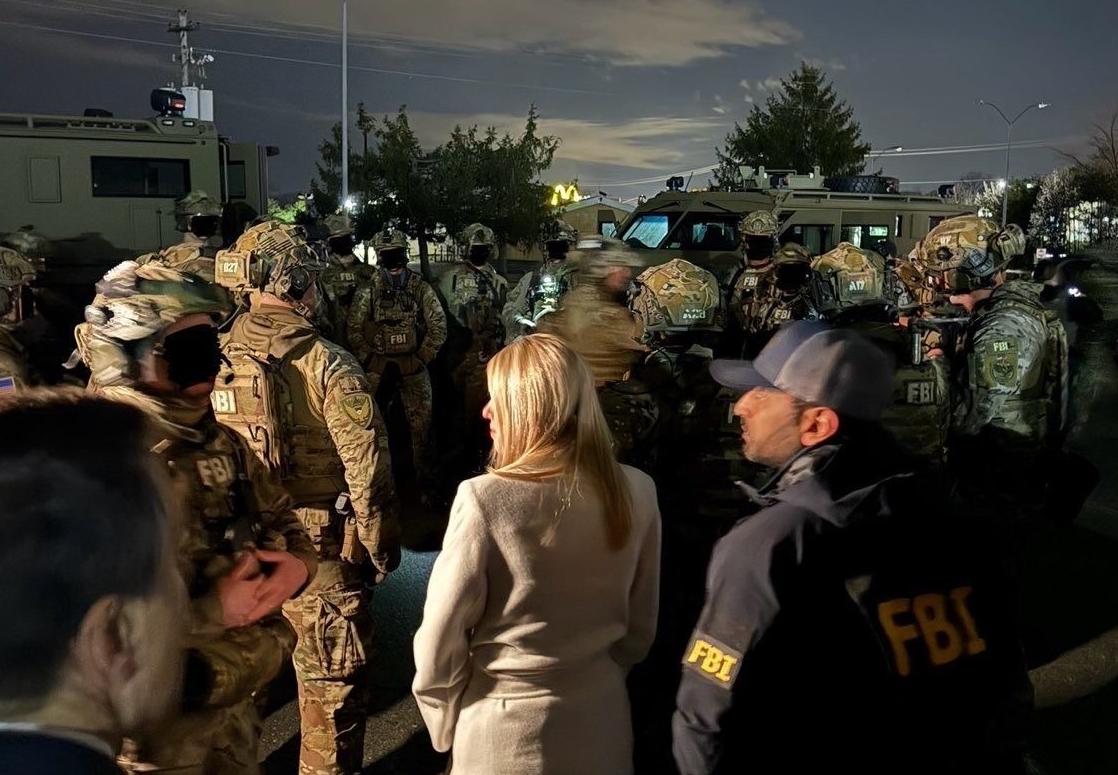In the quiet suburb of Woodbridge, Virginia, federal authorities this week captured one of MS-13’s top leaders operating inside the United States. Henrry Josue Villatoro Santos, a 24-year-old Salvadoran national, was arrested on illegal firearm charges. But this was no routine arrest. Instead, it was a deliberate strike as part of a broader, intelligence-driven campaign to dismantle one of the most violent transnational criminal organisations in the Western Hemisphere.
Villatoro Santos wasn’t just a gang member — he was a critical node in MS-13’s East Coast command structure. Authorities had identified him months prior as a senior operative, reporting directly to leadership in El Salvador. His responsibilities extended far beyond street-level violence. He oversaw drug trafficking corridors, coordinated extortion rackets, and maintained territorial control from Virginia to New York. His arrest marks a significant disruption of that network.
To grasp the strategic value of this operation, it’s necessary to understand what MS-13 is — and what it has become. Founded amid the chaos of El Salvador’s civil war and hardened in the jails of Los Angeles, MS-13 has evolved into something far more dangerous than a street gang. It is a transnational insurgency — structured, ideological, and violent. Its members often undergo military-style initiation, operate under a centralised command structure, and enforce discipline through acts of gruesome brutality. In one notorious Texas case, MS-13 members murdered a teenage girl in a ritualistic, Satanic-inspired killing. These are not random acts of violence but calculated methods of control.
During Donald Trump’s first administration, the US Department of Justice made a historic move, charging East Coast MS-13 commander Armando Eliú Melgar Díaz with material support to terrorists — the first such charge ever levelled against a gang leader. That case outlined the gang’s foreign-directed hierarchy and codified what national security professionals had long observed: MS-13 functions as a foreign-based criminal insurgency operating inside the United States.
Now, in his second term, Trump has expanded that framework. By designating MS-13 as a terrorist organisation, the administration unlocked powerful legal and operational tools typically reserved for jihadist groups. The arrest of Villatoro Santos demonstrates how this approach is working in practice.
What distinguishes this operation from past efforts is not its size, but its strategy. Previous administrations treated gang violence as a local law enforcement issue — often constrained by sanctuary city policies and interagency friction. The Trump-Homan model — named after former ICE Director Tom Homan — takes a radically different approach. It applies the principles of counter-terrorism and foreign internal defence: identify leadership nodes, map the transnational network, exploit vulnerabilities, and systematically collapse the structure.
This operation will send shockwaves through MS-13’s inner ranks. The arrest will raise critical — and destabilising — questions among the group’s members. Is Villatoro cooperating? Do authorities have access to internal communications? Are further arrests imminent? That kind of uncertainty is corrosive. It undermines command and control, degrades morale, and triggers internal paranoia. In insurgent networks, such disruption is as valuable as any arrest.
More importantly, this case offers a proof of concept. Every state in America now has a blueprint: treat these networks as insurgencies, not nuisances; integrate federal and local intelligence; empower law enforcement with real-time targeting data; apply pressure strategically rather than for headlines.
The lesson is clear: border security begins in our neighbourhoods. Transnational criminal organisations thrive when treated as mere domestic threats. But when confronted as the foreign-directed insurgencies they truly are, they fracture. For those who once believed they were beyond the reach of justice — like Henrry Villatoro Santos — that illusion is gone. No one is untouchable.










Join the discussion
Join like minded readers that support our journalism by becoming a paid subscriber
To join the discussion in the comments, become a paid subscriber.
Join like minded readers that support our journalism, read unlimited articles and enjoy other subscriber-only benefits.
Subscribe